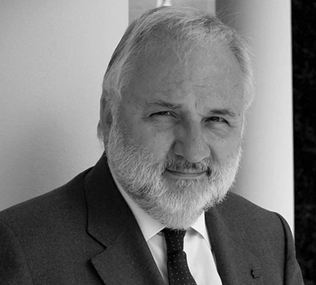Introduction from the President

Dear all,
Institutions, depending on their history, share certain features with living creatures: birth, growth, fruition…. This year, as we start to celebrate our first twenty years of life, we could say that the UOC is in the middle of a phase of multiplication. This academic year 2015/2016 alone we are rolling out four new bachelor's degrees – three of which are in collaboration with other Catalan universities – and three dual courses. We are growing, increasing the number of disciplines covered and the interconnections between areas of knowledge and institutions. Expand and connect, that is our role.
In short, nothing is more dangerous for the survival of institutions than self-complacency. Thus, constant innovation, a firm commitment to improvement and the ability to adapt to new social and professional demands are essential. Manuel Borja-Villel reflects on this and many other questions in this inaugural lecture which took place as a dialogue with the dean of the UOC's Faculty of Arts and Humanities, Joan Fuster-Sobrepere. The lecture was recorded in the Pavilion of the Spanish Republic at the Museo Nacional Centro de Arte Reina Sofía. As the director of this prestigious museum and with an internationally renowned professional career, Borja-Villel warns us of the need to evolve to adapt to the times: "institutions are living organisms".
What works today has to spur us on to think about what we will have to do tomorrow. Yesterday, we were the first to appreciate the importance of e learning for education and training; and today we are working on new projects such as the upcoming bachelor's degree in Fine Art, together with the Reina Sofía. There are those who can see things before anyone else and, what is more, who are willing to develop them. This is the recipe that guarantees, if not immortality, then at least growth, fruition, relevance… All that which characterizes us, all that which makes us the UOC.
All the best for the start of the year!
Josep A. Planell
UOC President
